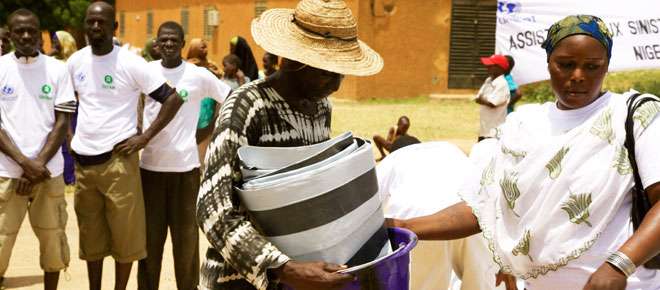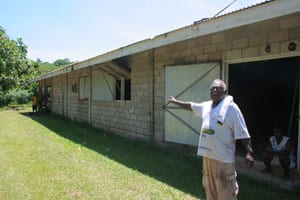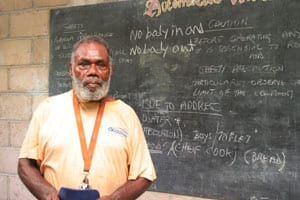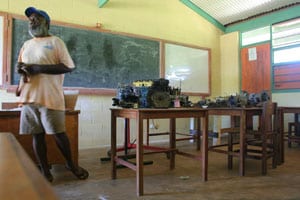Meet the Mondejar sisters: Nelia, Sarah Jane and Rizza Mae. They are aged 10, 8 and 5 respectively and they have been tasked with fetching water 10 times a day from a well and taking it to the high school where they are currently living in one of the classrooms. The water is dirty and contaminated with salt, but they have no choice but to drink it and now fuel is running low they can’t even boil the water before drinking it.
Blog
Typhoon Haiyan: Q & As
Why does it take so long for aid to be delivered and more of your questions.
Reema’s poem
A year ago, 12-year-old Reema’s home in Syria was destroyed by a bomb. Her family moved from place to place to escape the fighting, including living underground for three months with no electricity. Now Reema and her family live in an abandoned building in Lebanon.
You’ll never see her face or learn her real name, because Reema is scared – but the video below features a poem she has written about her situation and her longing to return to Syria.
You can help us scale up our response to bring support and hope to families like Reema’s.
Updates from West Africa

Freelance journalist Kim Vinnell reports from Mali and Niger in West Africa. She visited Oxfam programmes that are addressing the needs of the most vulnerable people, seeing how Oxfam is working to help communities increase their resilience to the crisis.
In video
Kim’s most recent video dispatches
- Opening an Oxfam cereal bank: Kim Vinnell witnesses the joy in drought-hit Koussané, Mali. Thanks to generous Oxfam supporters, the residents have been able to build a cereal bank to see the entire community through future lean seasons. Thank you!
In pictures
Photos from field:
Voices from Vanuatu
On a recent trip to Vanuatu, Ben McFadden from Oxfam’s Programmes team met with Arvie and Thomas, two trainers at Epule Rural Training Centre (RTC) on Efate.
They shared their stories with him, telling him the critical role RTCs play in improving the employment prospects for many young people in remote communities.
Meet Arvie
 |
| Arvie outside the Epule Rural Training Centre in Efate. |
Arvie, 66, is a carpentry trainer at the Epule Rural Training Centre on Efate.
The RTC is owned by the Presbyterian Church and has been running for more than 10 years.
Born in Vanuatu pre-independence, Arvie gained his training as a teenager working on construction sites both in his home village and in Port Vila.
Because of Vanuatu’s limited opportunities, Arvie had no choice but to relocate to Suva in Fiji, where he gained a formal qualification in carpentry and years of experience in the booming Fijian construction industry. He eventually moved back to Vanuatu where he worked for many years in at the Ministry of Works.
 |
| Inside the RTC, where Arvie teaches students the life-long skills they need to become carpenters. |
Arvie is passionate about the future of Vanuatu and particularly about providing a real, practical solution to the growing number of young people leaving education early, an issue that hits rural communities particularly hard.
Arvie had to move to Fiji as a young man in order to receive the necessary training in carpentry. He sees the vocational training the RTCs offer as a legitimate training mechanism as well as a real way to improve the livelihoods of the local communities.
“Young people who come here want to learn, they are good with their hands. The specific skills we provide benefits not just the local community, but the whole nation.”
But Arvie still has concerns. He has limited resources in his workshop, and he would like to teach the students more, but is restricted by this lack of equipment.
Meet Thomas
 |
| Thomas Faratia in his classroom at the Epule Rural Training Centre. |
Thomas Faratia, 62, is a mechanical trainer at the Epule Rural Training Centre.
Thomas has had a long career as a tradesman. Born in Vanuatu pre-independence, he gained his training in the capital, Port Vila, as a mechanic. Thomas moved to Fiji to gain a better income for his family, and then onto Port Moresby in Papua New Guinea for formal training.
Thomas worked for many years overseas before returning to work as a Member of Parliament in Vanuatu.
After a long career in politics, Thomas became increasingly frustrated with the government’s lack of community engagement. He decided to get into teaching, and since making this move, has enjoyed seeing the impact vocational training has had on his young students and their communities. He is still frustrated by the lack of support from Vanuatu’s government.
 |
| Thomas’s vocational training programmes equip people with the practical knowledge and skills that are needed in these remote communities. |
Thomas speaks openly about Epule’s needs:
“Students want to learn, and I enjoy seeing them excel, however we are limited by our equipment and we need extra resources.”
Despite this, Thomas has achieved many things. In 2011, of his 28 students, 26 of them continued on to the Vanuatu Institute of Technology (VIT) for higher education.
“I enjoy seeing the students grow, and with extra resources we could do so much more.”
Horn of Africa food crisis 2011 video diaries
A New way of life on the Dawa
14 December, 2011: Drought is making it difficult for herding families in southern Ethiopia to earn a living from their livestock. Some people have decided to try a new approach: irrigated farming. And they are tapping the Dawa River for water.
[Read more…] about Horn of Africa food crisis 2011 video diaries



